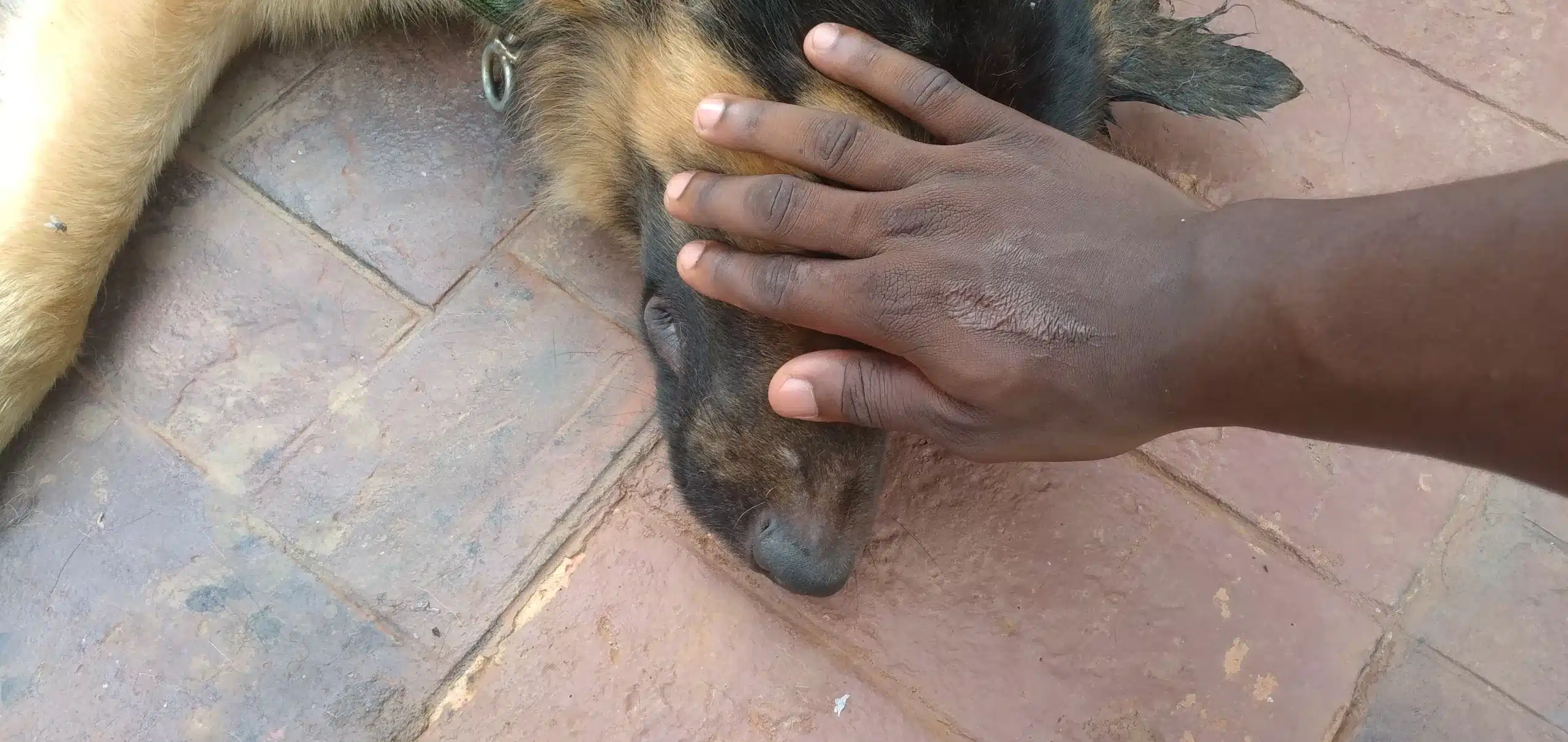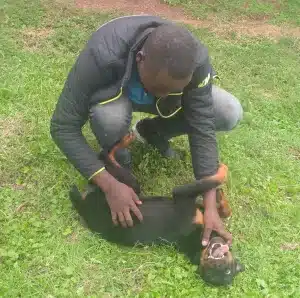9 ways of protecting your dog from severe diseases.

Many pet owners find themselves with dogs that are severely hit by disease to the point that they are critical patients. Critical patients in a term that means that they need hospitalization and constant monitoring. These are pets that may be living a good quality of life where they live in a good kennel, eat enough food and in time. These dogs may be living in the same environment as other dogs which respond quite differently when hit by the same disease. These dogs may respond with mild symptoms which resolve quickly and the dog returns to normal. As a dog owner, these events cause a lot of stress to you and are very expensive. The state that you find your dog in never leaves your mind. It becomes a dark memory you never want to return to.
Here are tips to living with a dog that never comes down with disease.
1. Routinely vaccinate your dog.
Uganda being a country gifted with a tropical climate, has several viral diseases that can cause severe disease in dogs. These viruses survive well in the environment and thus as a result they can be found anywhere in the environment. These viruses include Parvovirus, Canine distemper virus, canine influenza, infectious canine hepatitis virus, etc. It is therefore impos

Sick puppy on a canula
sible to prevent your dog from having contact with these. However, through vaccination, your dog gains the immunity it needs to mount a protective body defence system to prevent these diseases from causing severe symptoms. This ensures that in the presence of these diseases, your dog is safe and sound and its health is very good. There are three types of vaccines that you need to
ensure that your dog gets. These vaccines are the Parvo vaccine, Cocktail vaccine and rabies vaccine. A veterinarian can guide you further on how many times they need to be given and when.
2. Routinely deworm your dog
Dogs have all sorts of worms that threaten their quality of life, among these include heart and intestinal worms such as Toxocara species, dirofilarial, taenia species, echinococcus species, etc. These survive in diverse environments which your dogs keep on interacting with. Worms have mechanisms that make them survive in harsh environments and thus it’s difficult to provide a worm-free environment for your dogs. However, if you routinely deworm, the internal environment of your dog will be free from worms. Worms have a life cycles ( eggs, larva, pupa and adults). The routinely used de-wormers target a particular stage of the life cycle which means that only worms within that stage will be susceptible. That’s why it’s important to work with your veterinarian in designing a deworming schedule.
3. Have an ectoparasitic control strategy for your dog.
Dogs have ectoparasites whose survival depends on their presence on the dogs. Most of these ectoparasites such as ticks transmit severe and deadly diseases that threaten the life of your dog. These ectoparasites include fleas, ticks, mites, funguses, etc. Some of these ectoparasites have demonstrated resistance to several ectoparasites available on the market. Additionally, there are several fake products assumed to help in control of these. It is therefore very important that you work with your veterinarian in designing an ectoparasitic control strategy. It is possible to live in an environment free of these ectoparasites. However, it takes dedication and sticking to the strategy to achieve this.
4. Spay or neuter your dog
Neutering in the females also referred to as spay or ovariectomy/ovariohysterectomy is the removal of ovaries or together with the uterus. Neutering in males is called castration or orchiectomy. In these cases, the testes are the ones removed. These procedures are done when the dog is under general anaesthesia, thus there is an anaesthetic surgical risk. However, this is manageable with skilled and professional veterinary surgeons. Neutering helps prevent fighting behavior amongst dogs which means you will spend less in having a veterinary surgeon stitch fight bite wounds on your dog. Additionally, this eliminates risks of pyometra, ovarian tumours etc. It also controls roaming behaviors which reduces your pet’s exposure to infectious agents. Dogs can produce up to 9 or more puppies thus if you don’t need or don’t have the resources to house other dogs, it is important that you have this procedure done.
5. Don’t confine your dog for many hours
Dogs are sentient beings and thus have emotions. They know sadness, love, hate, etc. confinement causes emotional stress that has a profound impact on their behaviours and attitudes. The absence of this mental stress ensures that your dog thrives in its environment. Dogs should only be confined when there is a visiting guest, for some reason you wouldn’t want them to interact with. Studies have proved that confinement does not make a dog more aggressive. Thus, dogs should be allowed to most of the time be free in their environment interacting with things that they are curious about. This makes them more intelligent, and active and you will find them to be better companions/ pets.
6. Ensure proper hygiene.
We live in an environment that is endowed with several pathogens. Most of these pathogens require you to be exposed to an effective dose of them so that you can come down with disease. Poor hygiene creates incubation centres for these pathogens that usually have effective doses. Therefore, exposure to these will immediately result in disease. These include drinking and feeding dishes, the kennel, etc. As a guardian of a pet, it is important to ensure that proper hygiene is maintained for the good health of your pet.
7 . Feed your dog on a proper diet.
The body is consistently growing every second. Diet is the source of raw materials required for this growth to take place. As a result, the provision of a poor diet results in constraints on how your dog grows. This may hurt the immune system of your dog. The diet involves what you feed, when you feed it and how you feed it. It is important to note that dogs being carnivores have a higher nutritional demand for proteins.
8. Exercise your dog
Exercise is the best way of burning off excess fat and making use of the many muscles that make up the body. It is also a safe and easy way for the body to eliminate excess body waste. It is therefore imp

Dog playing with a vet
ortant that your dog engages routinely in exercises. Exercise improves the mood and behaviour of your dog. An exercised dog will be a less destructive and controllable.
9. Keep pointy and choky items away from your dog.
One study compared the intellect of an adult dog to a 9-year-old boy. 9-year-old boys never know what’s good for them. They don’t know that pointy items can pierce them nor that Items that can pass through their mouth, can choke them. It is therefore important to keep these items away from them, for the sake of their safety. At least let them interact with them under your strict supervision.
In conclusion.
It is very possible to live with a dog and in all its life span, it never comes down with severe disease. A veterinarian, especially a veterinary surgeon plays a vital role in ensuring this happens. It is therefore important to have your dog/pet under the care of a veterinary surgeon. Dogs play a significant role in our lives and thus a happy healthy dog is a happy and satisfied dog owner/client/ person. Stay safe and healthy.

[…] these vaccinations adheres to a schedule designed by a veterinarian. Vaccinations typically commence at 4 weeks, but can still be initiated at any age. It’s imperative for pet […]